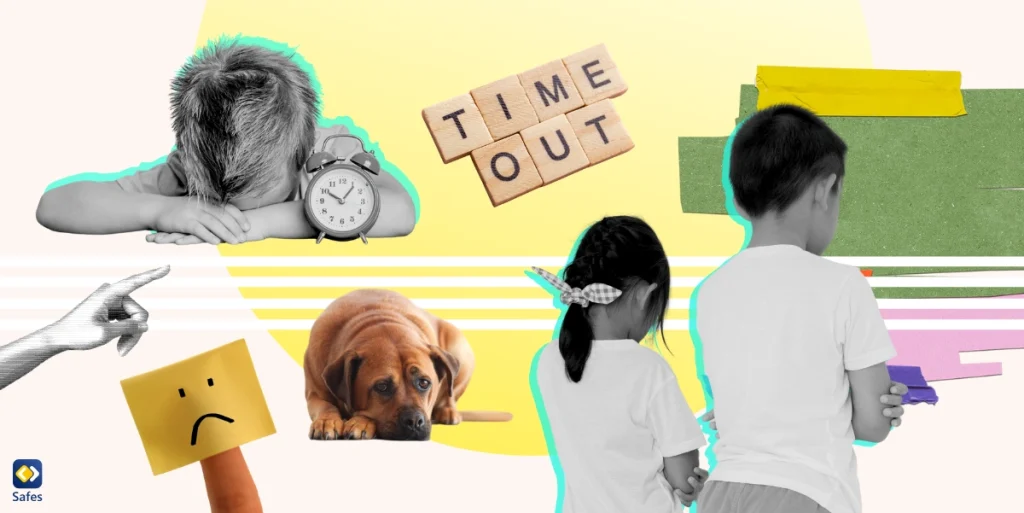In the fast-paced digital age, cryptocurrencies have become a buzzword, and kids are naturally curious about this intriguing world of digital money. As a parent, embracing this curiosity involves striking a balance between fostering a sense of exploration and instilling the importance of responsible engagement. Before diving into the crypto for kids conversation, it’s essential to equip yourself with a fundamental understanding of the concepts involved. This ensures that you can guide your children through their crypto journey in a way that is both educational and cautious.
Download and Start Your Free Trial of the Safes Parental Control App
Understanding the Basics of Digital Currencies
The foundation of a child’s cryptocurrency education lies in simplifying the often complex terminology associated with this digital realm. Start by explaining the concept of blockchain as a secure, unchangeable digital ledger that records transactions. Analogies, such as comparing blockchain to a digital piggy bank, can make these abstract concepts more relatable. By breaking down the basics into digestible pieces, you’re laying the groundwork for a solid understanding that will serve as the springboard for further exploration.
When explaining specific cryptocurrencies like Bitcoin for kids, frame them as digital assets with unique properties. For instance, Bitcoin could be described as a form of digital gold, highlighting its scarcity and decentralized nature. Make sure to clarify that these digital assets are not physical coins but rather exist in a virtual space. This understanding sets the stage for more advanced discussions about the broader crypto market and the various technologies that underpin these digital currencies.

Emphasize the Importance of Safety
In the digital age, online safety is a critical lesson for kids, and the world of cryptocurrencies is no exception. Financial literacy starts with digital literacy. Begin by explaining the importance of safeguarding private information. Teach them about the necessity of strong, unique passwords and the risks associated with sharing personal details online. Reinforce the idea that, just like in the physical world, there are individuals with malicious intentions in the digital space.
Furthermore, stress the importance of parental supervision when exploring the crypto world. Establish clear guidelines about when and where it’s appropriate to engage in discussions or activities related to cryptocurrencies. By laying down these safety measures, you’re creating a secure environment for your children to explore and learn without unnecessary risks. The same goes for when schools want to explain cryptocurrency for students. As Investopedia suggests in their not-so-kid-friendly about cryptocurrency, remember to emphasize that using crypto isn’t a game. Speaking of games, you can use budgeting games to improve your child’s financial literacy in general.
Example of Teaching a Child About Cryptocurrencies
Here’s what a simple explanation of cryptocurrencies would look like for a child aged approximately 10 years old: You have a super cool digital piggy bank, but instead of holding regular money, it’s got these special online coins called cryptocurrencies. These digital coins are like your own magical tokens that you can use to trade or buy stuff on the internet.
Your digital piggy bank isn’t controlled by just one person or a bank. It’s part of a big online club called a blockchain. This club makes sure everything is fair and square, like having a bunch of online friends looking out for you.
So, when you want to trade or get something fun online, your digital piggy bank uses the blockchain to make sure it’s all good and no one’s tricking you. It’s like having a secret team of online helpers making sure your coins are safe.
But just like you wouldn’t share your piggy bank’s secret code with everyone, you’ve got to keep the password to your digital piggy bank super safe. That way, your online coins stay yours and you can use them for all kinds of cool stuff on the internet. And that’s what people mean when they talk about cryptocurrencies – it’s like having your own special digital piggy bank adventure online!
A more simplified version of this can even be used to explain crypto to a 5-year-old. The key is in using analogies. They don’t have to start understanding the intricacies of cryptocurrencies until they’re older.

Conclusion
Introducing kids to the world of cryptocurrencies is a journey that requires a thoughtful and balanced approach. By simplifying concepts, emphasizing safety measures, encouraging a moderate approach, and highlighting learning opportunities, parents can empower their children to navigate the crypto world responsibly. Remember, fostering a sense of curiosity and setting boundaries go hand in hand in creating a positive and enriching crypto experience for the whole family. As you embark on this educational journey together, consider utilizing parental control apps to enhance the safety measures in place. Safes provides an additional layer of protection by allowing parents to monitor online activities, set time limits, and restrict access to certain websites. Integrating Safes into your approach ensures a safer and more secure digital exploration, fostering not only a responsible understanding of cryptocurrencies but also instilling good online habits that will benefit your children in the broader digital landscape. Safes is available on iOS and Android alongside other platforms. Sign up for a free trial and give them a head start in understanding digital finance.
Your Child’s Online Safety Starts Here
Every parent today needs a solution to manage screen time and keep their child safe online.
Without the right tools, digital risks and excessive screen time can impact children's well-being. Safes helps parents set healthy boundaries, monitor activity, and protect kids from online dangers—all with an easy-to-use app.
Take control of your child’s digital world. Learn more about Safes or download the app to start your free trial today!




